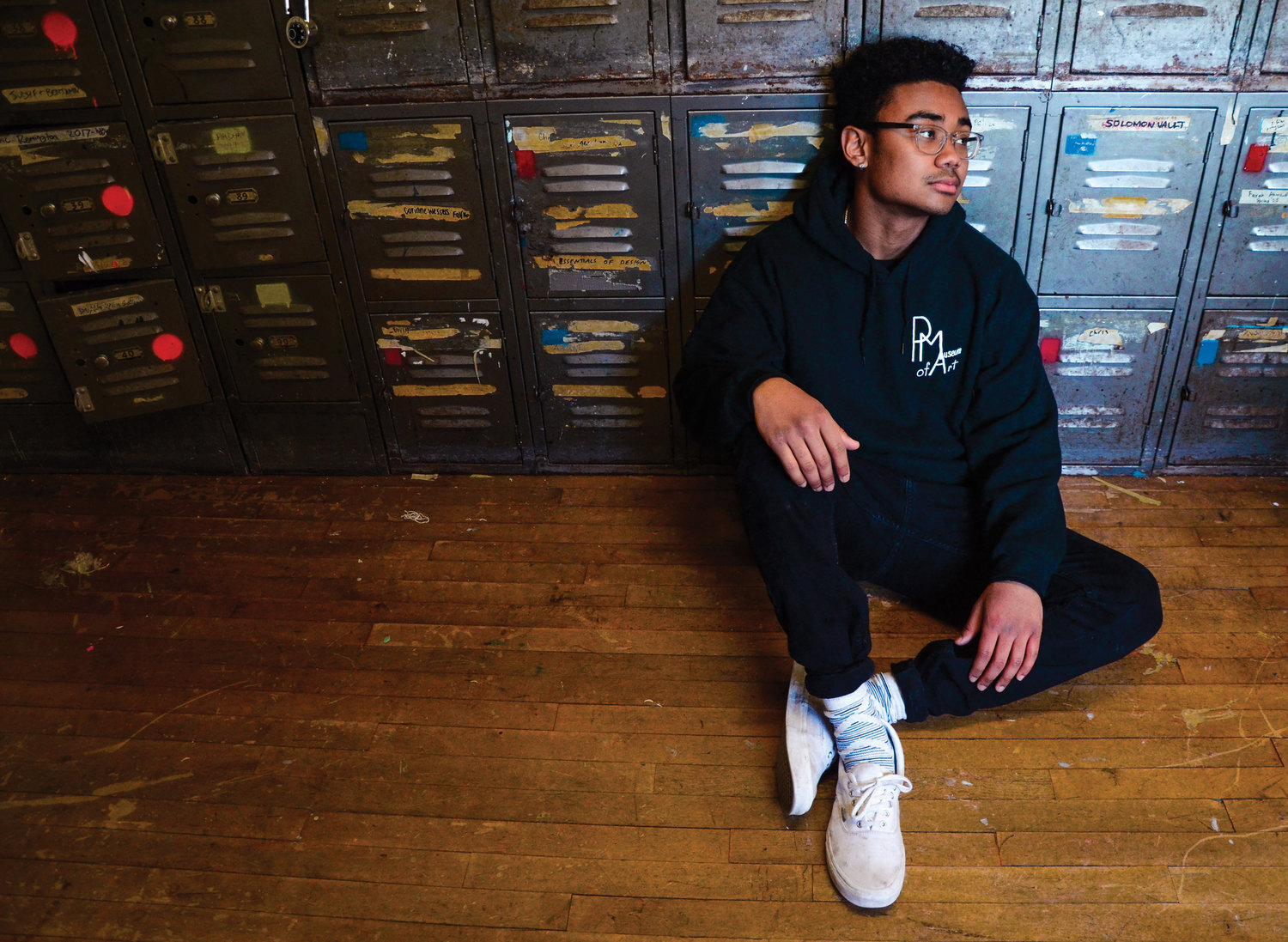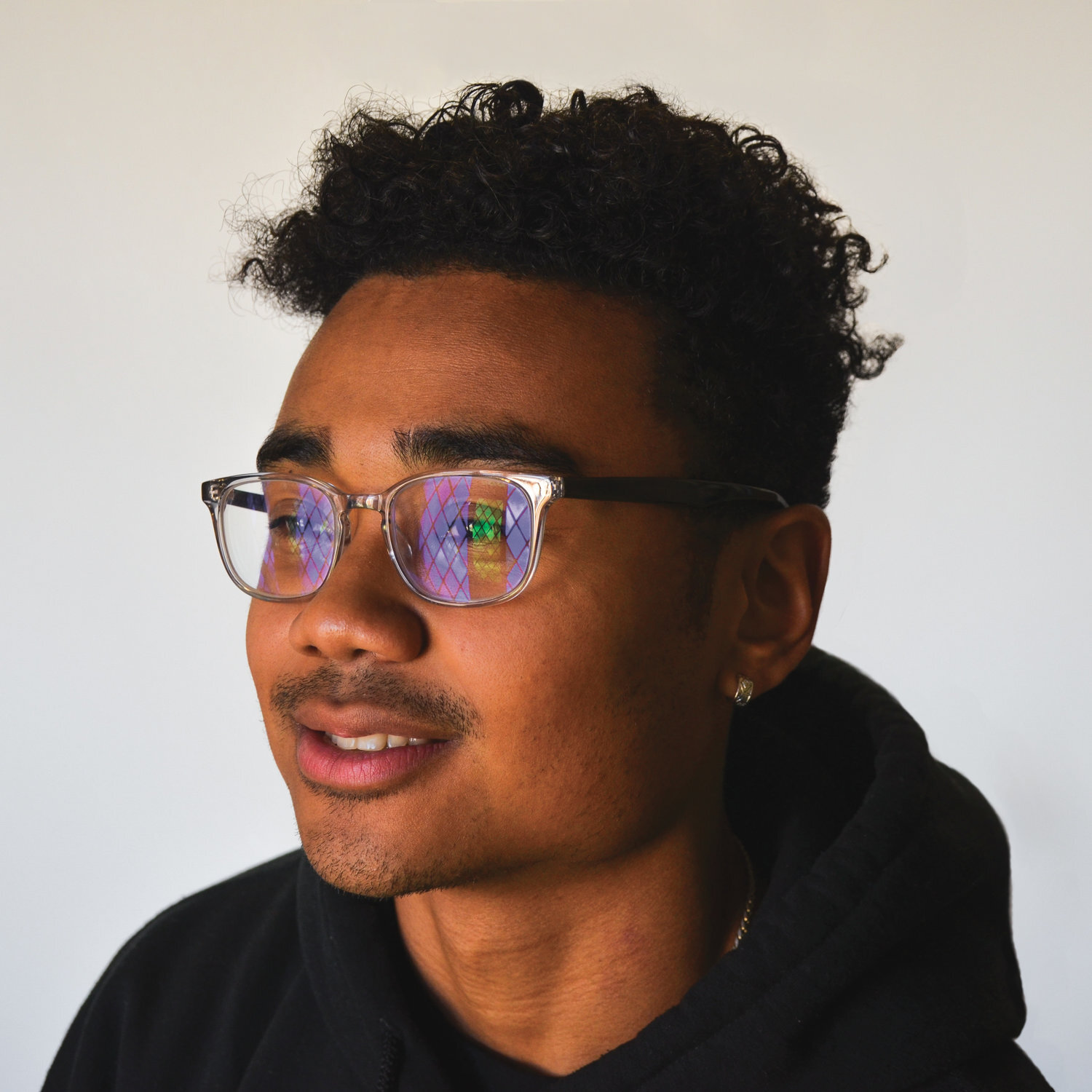No Experience Needed





Photos by Mai Schotz
When Arda Genç and Varun Ganglani, sophomores in the McCormick School of Engineering, began designing their clothing brand, NoFeedback, this past fall, the duo aimed to keep the wearer in mind. The streetwear brand, which has not officially launched yet, features articles of clothing with upside down, hand-drawn texts and unique, vintage photographs.
“I like wearing what I want to wear without caring what other people think of me,” Genç explains. “That’s where the first concept came from for NoFeedback.”
According to Genç, the brand encompasses the idea that the clothing one wears should not be subjected to the feedback of other people, but should cater solely to the wearer: hence the name NoFeedback. The upside down texts also adheres to this concept.
“Clothes are for yourself,” Genç said. “So the designs are reversed because when the customer wearing it looks down, they can read what it says.”
The design process begins with hand drawing catchy phrases and then searching for a photograph to accompany the text before translating the designs onto products. Amongst the black hoodies, blue crewnecks and other pieces of clothing, phrases such as “heartbroken” and “lovesick” are printed upside down in pastel purples and pinks. One hand-drawn design reads “friends” to the viewer, but from the viewpoint of the wearer it depicts the phrase “family.”
In addition to these phrases in gothic fonts, NoFeedback’s clothing displays compelling, old-school images on the backs of the shirts and sweatshirts.
“We are into the hip-hop scene, and so we look for pictures of iconic artists with a vintage, underground vibe,” Genç says. “And now we are going to try and draw the pictures by hand and play around with the designs on illustrator to produce something unique.”
Genç and Ganglani were both inspired by streetwear brands they follow on Instagram. After discussing branding strategies, they decided they could create something special together.
"We found that a lot of young people who are into fashion are interested in anything even slightly exclusive,” Genç says. “Like Supreme drops.”
Therefore, NoFeedback plans on maintaining an air of exclusivity by releasing limited quantities of each piece.
NoFeedback is currently in the process of designing and ordering sample products in anticipation of its official launch. Within the next couple of weeks, Genç and Ganglani will be comparing the quality, price and service times of multiple manufacturers before finalizing their products
Ultimately, the goal is to create a brand that supports individuality.
“I think a lot of people wear clothes that they are scared people will find funny,” Genç says. “When you wear something you’re happy with, what other people think shouldn’t matter. That’s what NoFeedback supports.”
______
Allison Dining Hall is not the place where you would expect to find inspiration for a clothing line. However, that is exactly where Gordon Dunbar, Nicolas Tamborrel and Jesse Zhou came together to brainstorm. Now, after a mere 10 weeks, the trio has designed, produced and sold an array of streetwear-inspired clothing.
“There was no serious thought process,” Dunbar says. “I sent Jesse a text over winter break and said ‘We’re too creative to sit around.’ All three of us got together and talked about starting a clothing line for about an hour and a half, and then we just, well, started it.”
The spontaneity with which the clothing brand arose inspired the name: Pseudo. According to the dictionary, the word pseudo means “not genuine or a sham.”
“Sure, someone might be buying our apparel, but we don’t have any idea what we are doing,” Dunbar says. “I think that adds to our clothes. It doesn’t take away.”
For Psuedo the design process is just as arbitrary. The three freshmen attempt to meet twice a week to simply sit down with printer paper and pencils and let the ideas flow. With no formal artistic training, Tamborrel, Dunbar and Zhou hand-draw the designs that will later be printed onto articles of clothing. Even their logo is in Dunbar’s handwriting.
“We aren’t great artists, but we get the general idea across, and then make it nice with a ruler,” Dunbar says. “That’s something we want to carry with us—that every single design you see on our clothing has been hand-drawn at some point.”
Most of Pseudo’s clothing is either black or white, with a small design imprinted upon it in the inverse color. The simple color palette is occasionally broken up by hints of red, light blue and pale pink. While the design may appear simple, the meaning is not.
“It’s never about what would look cool, but what we’re trying to create,” Dunbar says. “We’re trying to play with preconceived notions about an idea.”
For example, one of their designs features the words, “PMuseum of Art,” which makes light of the high-brow associations with museums.
Another design features a blue and pink kite with the phrase, “all that you need” written below. According to Dunbar, the pastel colors are meant to invoke the notion of childhood—being young and carefree. The placement of the whimsical phrase beneath a nostalgic symbol of youth evokes the idea that sometimes you need to simply fly away in order to escape reality.
“I think it’s more of making a statement and capturing it creatively,” Dunbar says. He believes that how one dresses is an outward expression of the inner self, a notion that Pseudo conveys in its clothing.
The team has not thought much about the future of the budding brad. They are simply seeing where it goes. The invaluable experience that comes with building a line of clothing is worth whatever happens, according to Dunbar.
“We learned so much,” Dunbar says. “It would be awesome to have this on the side while I’m in college or maybe even beyond.”
